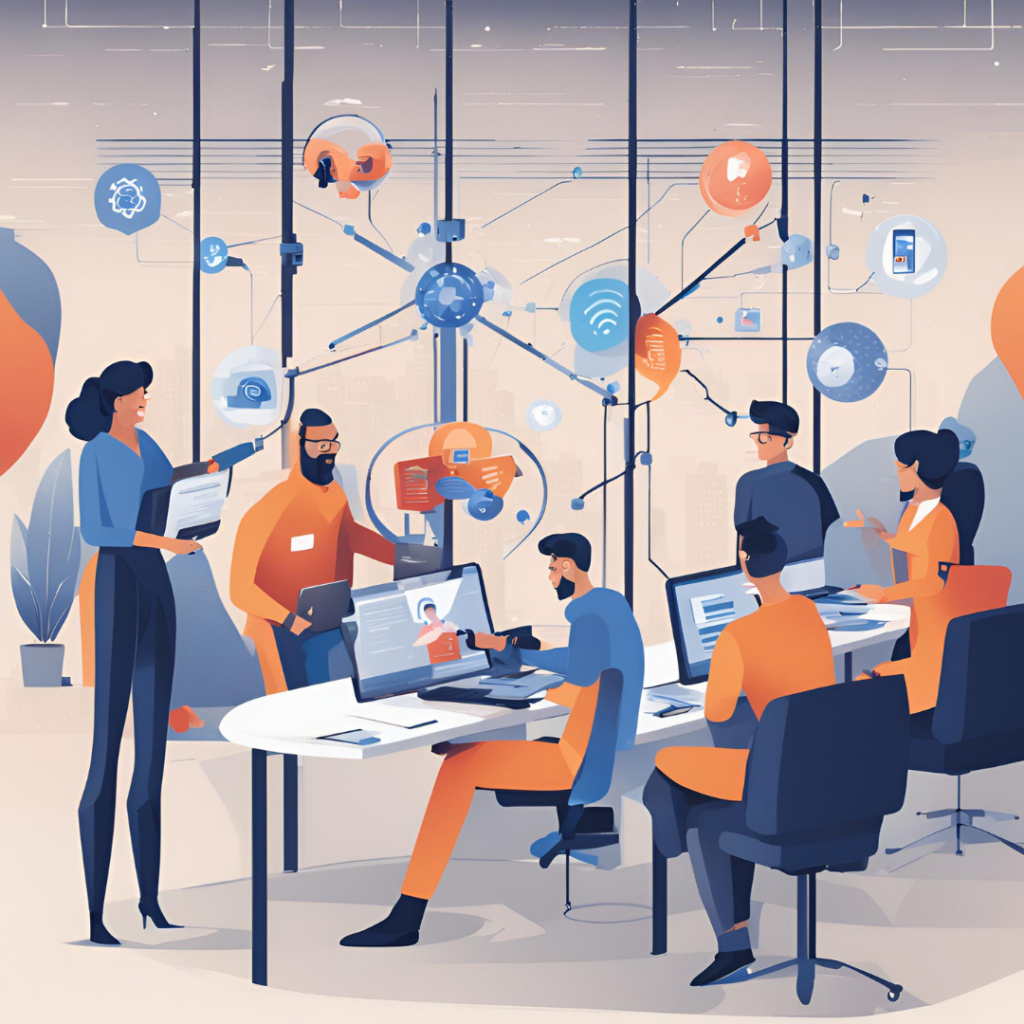
post
June 7, 2024
AI Agents: From Sci-Fi to Business Requirement
The global autonomous AI agents market is projected to reach $28.5 billion by 2028, exhibiting a remarkable CAGR of 43% during this period. The buzz around AI agents has been amplified by the Google Cloud Next ’24 Opening Keynote, which unveiled a broad array of AI agents. OpenAI’s GPT-4o reveal turned up the heat, adding enhanced vision capabilities to the mix (and mimicking aspects of the conversational AI experience portrayed in the 2013 film Her).
As this technology gains traction, the way we think about software development and technology ecosystems is changing. But what exactly are AI agents, and what kind of infrastructure is required for them to harness their full potential as force multipliers, and how can you apply an agentic approach to workflow automation?
In a recent episode of the Invisible Machines podcast, Robb Wilson (CEO and Co-Founder of OneReach.ai) and Josh Tyson demystify AI agents by addressing key questions from business and technology leaders across diverse global enterprises. Here are some of their fresh insights into the profound impact of AI agents on the future of software and the paradigm shifts necessary to harness their full potential.
Episode highlights:
- AI agents represent a revolutionary approach to software development
- How to build bridges between legacy systems and AI agents
- Leveraging a multi-agent approach to enhance employee and customer experiences
- The importance of testing AI agents during implementation
- Investing in architectures that enable seamless AI agent communication as a long-term strategy

AI Agents—a New Software Paradigm
We’re moving to a world where software is being written on the fly. It means it’s being written, tested, and deployed instantaneously. It’s a completely different way of thinking.
Robb Wilson, CEO and Co-Founder of OneReach.ai
AI agents represent a paradigm shift in software development, ushering in a new era where software is written, tested, and deployed instantaneously. This approach requires a fundamental rethinking of how we conceptualize and develop software. Instead of meticulously crafting every line of code, developers should focus on clearly defining objectives, constraints, and instructions, allowing the AI agent to handle the intricate details of implementation.
As we transition to this new paradigm, a clear roadmap becomes essential—a bridge is necessary to seamlessly integrate AI agents into existing software ecosystems. Initially, AI agents can operate alongside and orchestrate legacy systems until they eventually replace outdated software entirely. This evolutionary process requires an iterative approach, where AI agents are continually tested and refined to ensure their reliability and effectiveness in real-world scenarios.
AI agents are not a distinct kind of technology. They are part of a broader technique for using LLMs as a conversational interface.
Robb Wilson, CEO and Co-Founder of OneReach.ai
Creating a Microservices Architecture
A microservices architecture is well-suited for AI agents, thanks to its composable nature. With its innate flexibility, this architecture enables dynamic scaling, however, to fully harness the power of AI agents, a broader apparatus beyond just the microservices architecture is required. This includes event-driven systems, threading mechanisms, state management, and memory handling capabilities. The microservices architecture needs to be contextualized within a larger ecosystem that can manage and orchestrate these dynamically generated services.
To truly unlock the potential of AI agents, a multi-agent approach within the microservices context is essential, where multiple agent threads collaborate and interact in various patterns. This multi-agent architecture and environment is where the true excitement lies, enabling complex workflows and intelligent decision-making through the cooperative synergy of multiple AI agents.

Embracing AI Agents Revolution
As the era of AI agents dawns, organizations that adopt a top-down approach and prioritize building a robust architecture that enables seamless communication and collaboration between AI agents from the outset will reap the benefits of implementing AI agents fastest.
This holistic approach paves the way for a future where AI agents can orchestrate workflows and decision-making processes with unprecedented efficiency and intelligence. Embracing this paradigm shift requires a strategic mindset, but those who do so are well-positioned to unlock the transformative potential of AI agents and stay ahead in an increasingly automated world.
Watch the full episode for more insights on YouTube or listen to it on Apple Podcasts/ Spotify.
Curious to discover how AI agents can enhance your business? Download our whitepaper “What Everyone Is Getting Wrong About AI Agents”.
Stay up to date
Latest Articles




